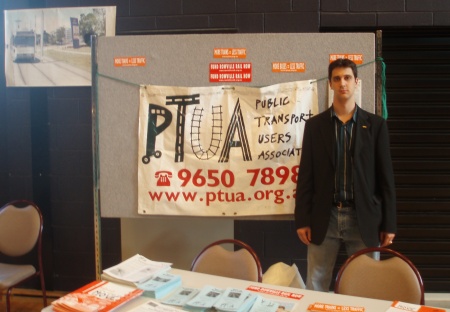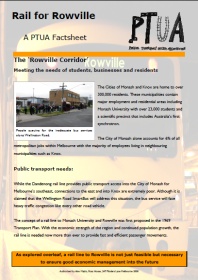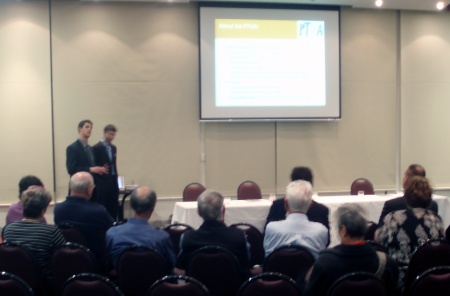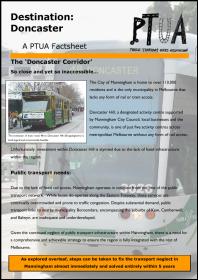As part of its public transport election coverage the Maroondah Journal has focused on the lack of political commitment from the State political parties towards the redevelopment of Ringwood Station:
Maroondah councillor and Public Transport Users Association spokesman Alex Makin said he saw the station as a “cornerstone commitment” needed for Maroondah.
The redevelopment of Ringwood Station is a crucial project to encourage a vision of public transport usage and urban amenity as envisaged as part of the part of the Ringwood Transit City concept.
“Neither party has committed to funding the project,” he said. “Labor just seems to be dragging its feet in Ringwood in preference to Dandenong. In Ringwood it seems as if every year it is just us standing there with our cap in hand waiting.”
Unfortunately, with the exception of Dandenong, the Government has failed to provide a long-term funding stream for the designated Transit Cities (such as Box Hill, Ringwood or Footscray) meaning that there is little, other than rhetoric, to the State Government’s Transit City program.
“It is difficult to utilise for people with a disability,” Cr Makin said. “We aren’t asking for a redevelopment for the sake of a redevelopment; we need it just to meet essential public transport requirements.”
Ringwood Station currently fails to met federal accessibility requirements as prescribed in the Federal government’s Disability Discrimination Act of 1992 meaning that Ringwood Station is largely inaccessible for people with a disability.
In addition Ringwood Station is also perceived to be largely unsafe and its dilapidated appearance hampers the potential of the surrounding area.
It is time that the Bracks Government showed respect for the Ringwood Transit City program and pledged to deliver both the redevelopment of Ringwood Station and a multiyear investment program for Ringwood. Plans for the redevelopment of Ringwood Station have existed since 1999 and it is now time for the Government to commit to the project rather than deliver nothing but rhetoric.




